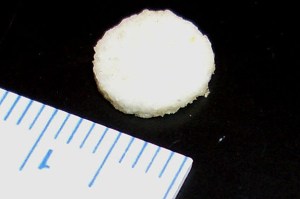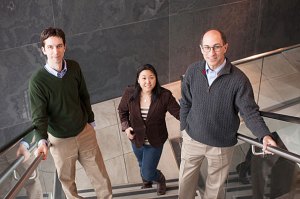Tag: Science Translational Medicine
-
Health
Fetal sex a factor in COVID-19 immune response, study says
A new study finds that placentas of male and female fetuses respond very differently when a mother is infected with SARS-CoV-2 during pregnancy.

-
Science & Tech
Electrifying invention can save young lives
Treatment with inhaled nitric oxide (NO) has proved to be lifesaving in newborns, children, and adults with several dangerous conditions. But the availability of the treatment has been limited by the size, weight, and complexity of equipment needed to administer the gas, and the therapy’s high price — until now.
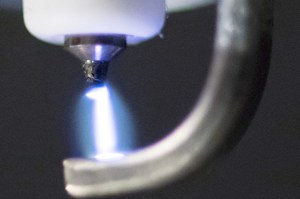
-
Health
Drug delivery system prevents transplant rejection
In pre-clinical studies conducted by the researchers, a one-time, local injection of the hydrogel-drug combo prevented graft rejection for more than 100 days. This compared with 35.5 days for recipients receiving only tacrolimus, and 11 days for recipients without treatment or only receiving hydrogel.
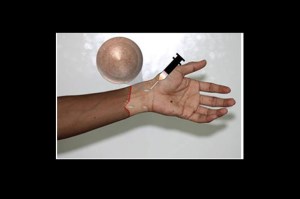
-
Health
Bio-inspired glue keeps hearts securely sealed
The waterproof, light-activated glue developed by researchers at Harvard-affiliated Brigham and Women’s Hospital and Children’s Hospital Boston and their colleagues at MIT can successfully secure biodegradable patches to seal holes in a beating heart.
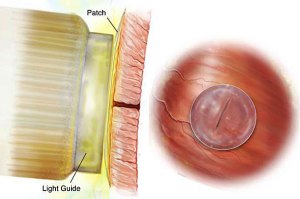
-
Health
Cancer vaccine begins Phase I clinical trials
A cross-disciplinary team of Harvard scientists, engineers, and clinicians announced Sept. 6 that they have begun a Phase I clinical trial of an implantable vaccine to treat melanoma, the most lethal form of skin cancer.

-
Health
Lasering in on tumors
In the battle against brain cancer, doctors now have a new weapon: an imaging technology that will make brain surgery dramatically more accurate by allowing surgeons to distinguish between brain tissue and tumors, and at a microscopic level.
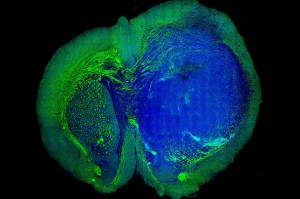
-
Health
A treatment for ALS?
According to researchers, results from a meta-analysis of 11 independent amyotrophic lateral sclerosis (ALS) research studies are giving hope to the ALS community by showing, for the first time, that the fatal disease may be treatable.

-
Health
Personalized medicine closer to reality
A consortium of scientists at 20 institutions, led by a principal faculty member at the Harvard Stem Cell Institute, has used stem cells to take a major step toward developing personalized medicine to treat Parkinson’s disease.
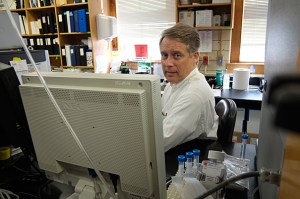
-
Health
Cells that kill HIV-infected cells
Harvard researchers find that a subpopulation of the immune cells targeted by HIV may play an important role in controlling viral loads after initial infection, potentially helping to determine how quickly infection will progress.
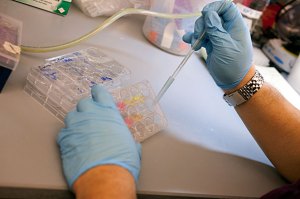
-
Health
Alleviating radiation sickness
A combination of two drugs may alleviate radiation sickness in people who have been exposed to high levels of radiation, even when the therapy is given a day after the exposure occurred, according to a study led by scientists from Harvard-affiliated Dana-Farber Cancer Institute (DFCI) and Children’s Hospital Boston.
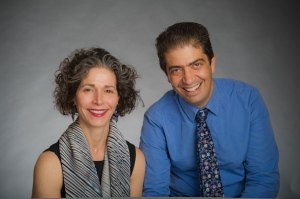
-
Health
A new target for Parkinson’s therapy
In a new finding from Harvard-affiliated Brigham and Women’s Hospital (BWH), researchers identify a link between Parkinson’s disease onset and dysfunctional activity of energy genes in the brain and identify a potential therapeutic target to reverse this energy gene failure.
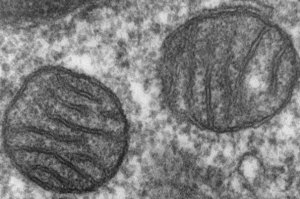
-
Health
Cancer vaccine success
A cancer vaccine carried into the body on a carefully engineered, fingernail-sized implant is the first to successfully eliminate tumors in mammals, scientists report this week (Nov. 25) in the journal Science Translational Medicine.
